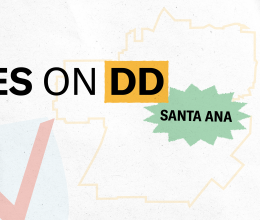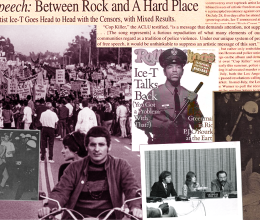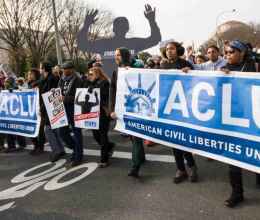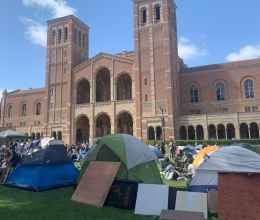The Scandal-Ridden Orange County D.A. Hits 'Delete' on All Negative Comments
Orange County District Attorney Tony Rackauckas is one of the most scandal-ridden and criticized government figures in California. He has been roundly disparaged by courts, legal experts, the Orange County community and the media for mismanagement, misconduct and worse.
But you wouldn't know it from his official Facebook page and Twitter feeds.
Absolutely nothing is amiss in these online locales where Rackauckas portrays himself as a just and benevolent leader backed by 100% of an adoring populace.
It's like an alternative universe out of an episode of "Black Mirror" — one of the scary ones.
Of course, Rackauckas does have his critics — plenty of them. Perhaps the only time he got a high ranking from an outside source was when his office scored #2 last year in a report by Harvard Law School's Fair Punishment Project. But that was not a good thing — the Harvard study ranked the Rackaukas office second of all California district attorneys in misconduct findings and court reversals.
But if a Rackauckas critic leaves a negative comment on his office's Facebook page, it is quickly and efficiently deleted. Negative tweets on the DA's Twitter account meet with a similar fate — the person who sends the tweet is blocked.
That would be OK (if incredibly vain) if Rackaukas were a private citizen. But he's an elected official, and the online posts his office is censoring are representative of the government. And that makes them off limits for censorship.
That's why the ACLU of Southern California is sending him a letter today. Simply put, the government can't censor a speaker simply because it doesn't like what the person has to say or because the person criticizes the government. This rule is as true on the internet as it is in a public park. Even the U.S. Supreme Court, which hasn't always stayed up to date on current technology, recognizes that the internet — and specifically social media — is where some of the most important debates of our time take place.
If government officials allow comments on their Facebook posts, they must allow all comments about the subject of that post. Similarly, if the government has a Twitter page where anybody can tweet at the official, it can't block people who tweet critical comments.
For an example of how the Rackauckas office applies censorship, one need look no further than how it reacted to the Harvard study. The DA's office posted a video on its Facebook page of a Rackauckas press conference during which he tried to debunk the highly critical study.
Some who visited the page weren't buying it. One asked for his response to the California Court of Appeals' assessment of his office in the highest profile murder case Orange County has ever seen — which noted that "the magnitude of the systemic problems (in Rackauckus' office) cannot be overlooked." That question was not answered — indeed, it was quickly deleted.
Yet, all over the DA's site, comments such as "You are doing a great job" and "Thank you OCDA for protecting us" are allowed to remain.
This is no way for a high-ranking government official to act in a democracy, online or off. While the application of the First Amendment to social media is starting to be affirmed by courts, the principle that the government cannot censor speech that is critical of it lies at the core of our democracy and society.
Unfortunately, it seems as though Rackauckas needs yet another reminder about constitutional principles.





